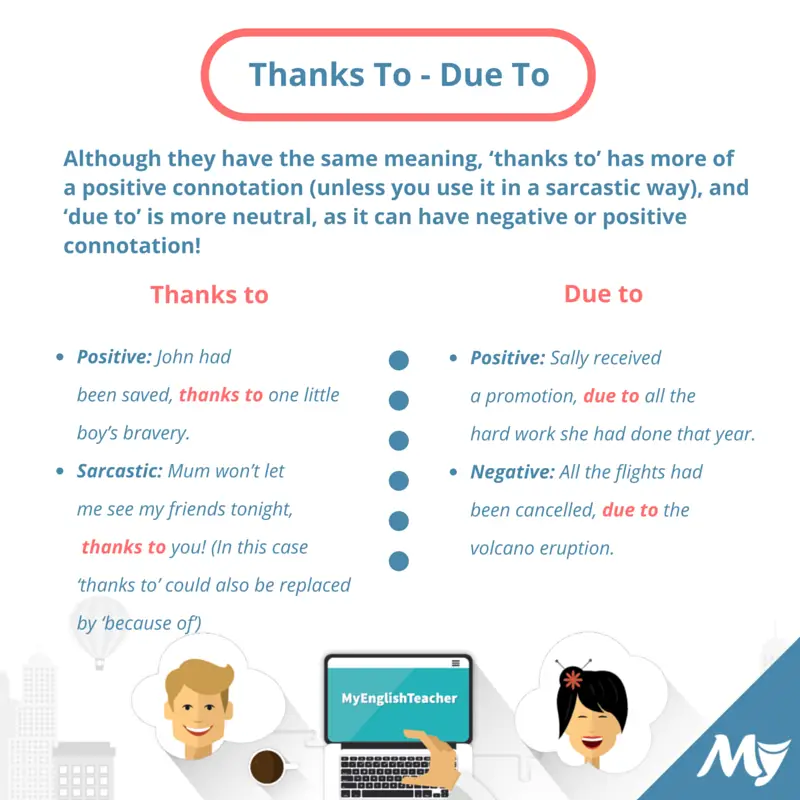
Although they have the same meaning, ‘thanks to’ has more of a positive connotation (unless you use it in a sarcastic way), and ‘due to’ is more neutral, as it can have negative or positive connotation!
Here are some examples of use:
THANKS TO
Positive – John had been saved, thanks to one little boy’s bravery.
Sarcastic – Mum won’t let me see my friends tonight, thanks to you! (In this case ‘thanks to’ could also be replaced by ‘because of’)
DUE TO
Positive – Sally received a promotion, due to all the hard work she had done that year.
Negative – All the flights had been cancelled, due to the volcano eruption.
Recommended for you:
Is it good to say “it’s my pleasure to meet you
Useful English Phrases For Running A Business Meeting
I’m still confused with “due to” and “because of”
What’s the meaning of ‘ making due eyes ..

























“thanks to” is a connector right? (I need to solve this doubt asap)
Hi, no, ‘thanks to’ is not a connector. But you can use it to connect sentences.
Together, “thanks to” emerged as a phrase expressing gratitude or acknowledgment for something that has happened. This is where its role as a connector begins.
The Function of “Thanks To”
While “thanks to” may not be as grammatical as traditional connectors like “although” or “because,” it undeniably serves as a link between two parts of a sentence.
Consider the following examples:
“Thanks to her dedication, the project was completed ahead of schedule.”
“The success of the campaign was largely thanks to the creative team’s innovative ideas.”
In both instances, “thanks to” connects the cause (dedication and creative ideas) to the effect (project completion and campaign success), clarifying the relationship between the two. It is, therefore, a connector in the sense that it helps connect causal relationships within a sentence.
It can be used in various contexts to express gratitude, but it can also express blame or irony, depending on the speaker’s intention.
Expressing Gratitude: “Thanks to your help, I was able to succeed.”
Expressing Blame: “Thanks to the terrible weather, our outdoor event was a disaster.”
Irony: “Thanks to your timely advice, I narrowly avoided a catastrophe.”